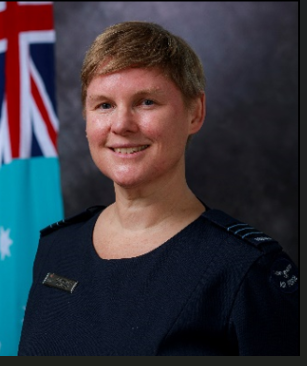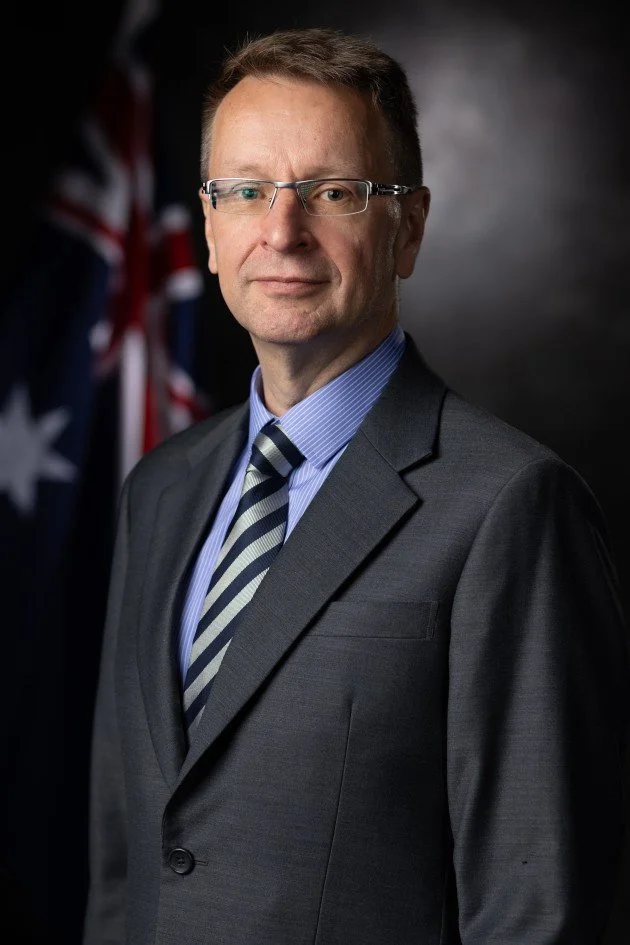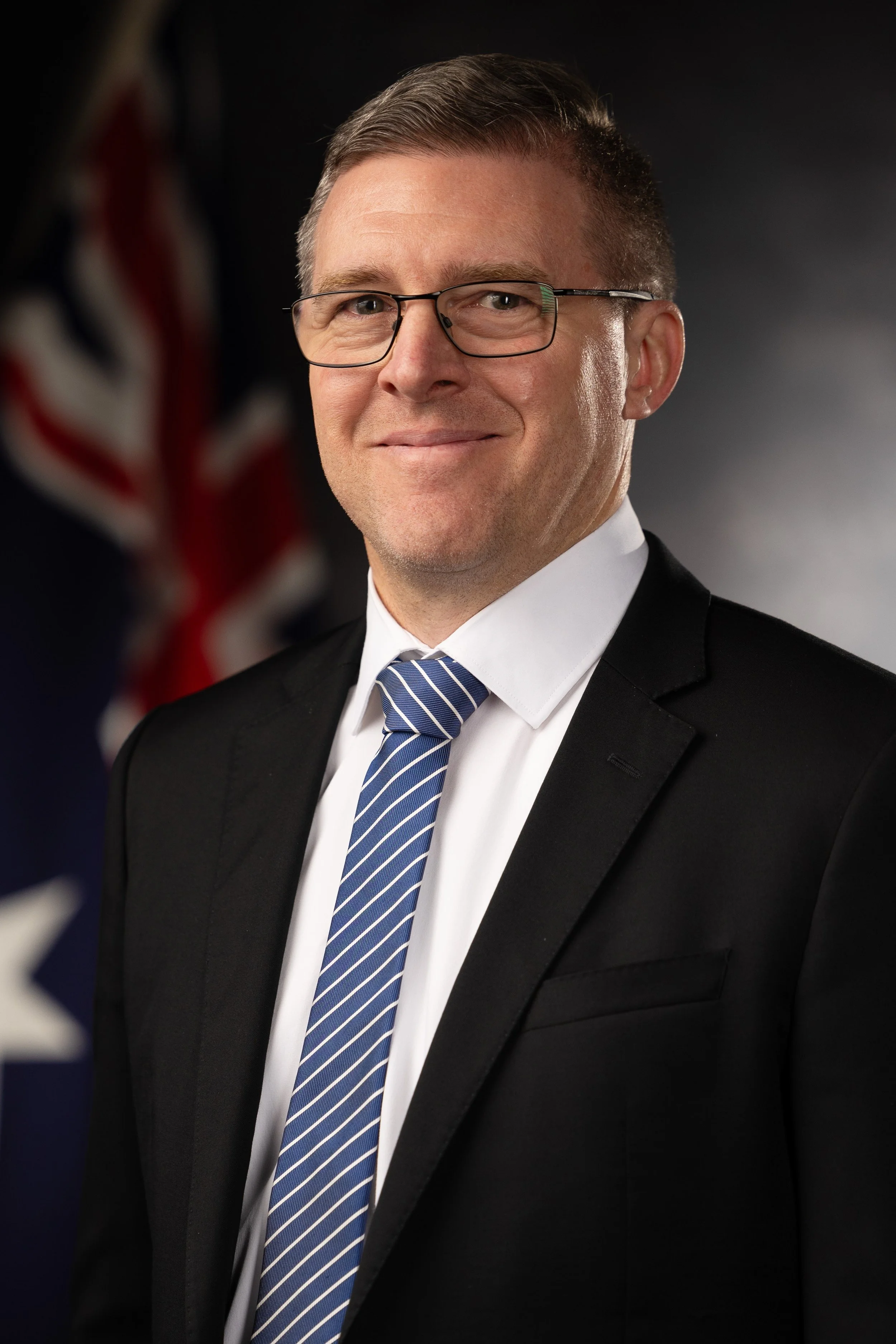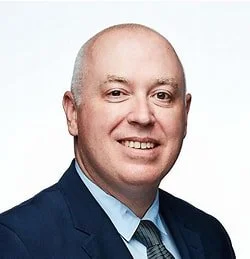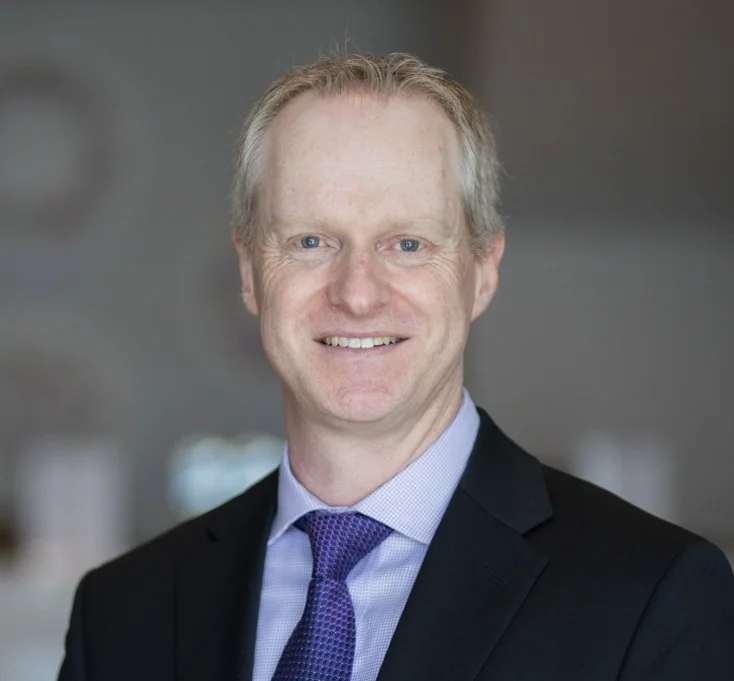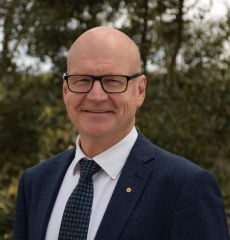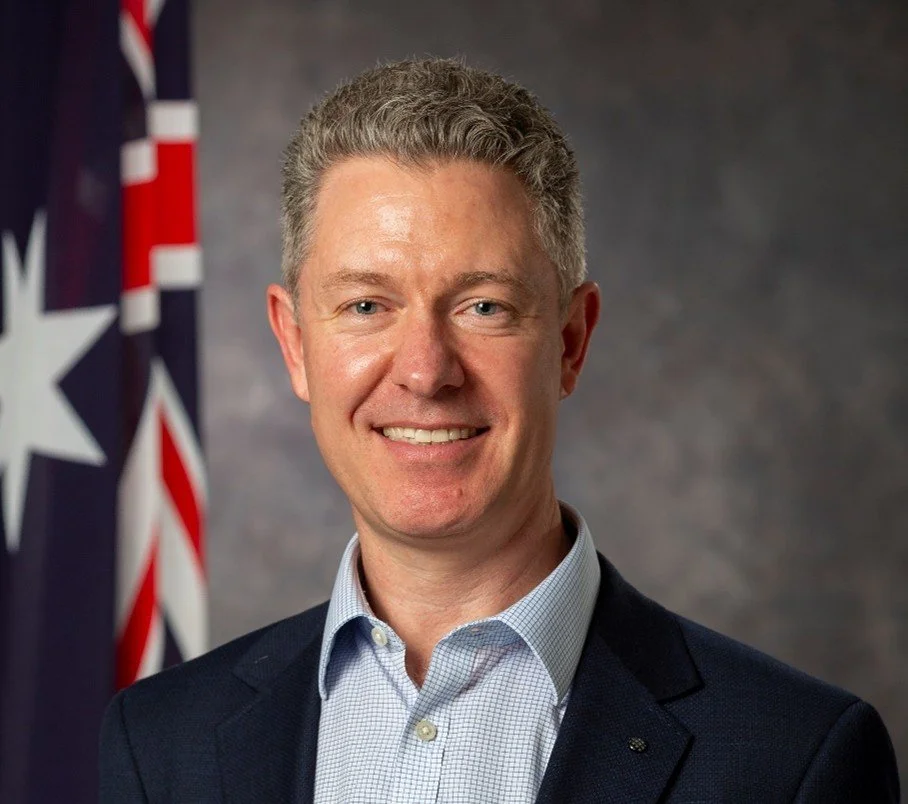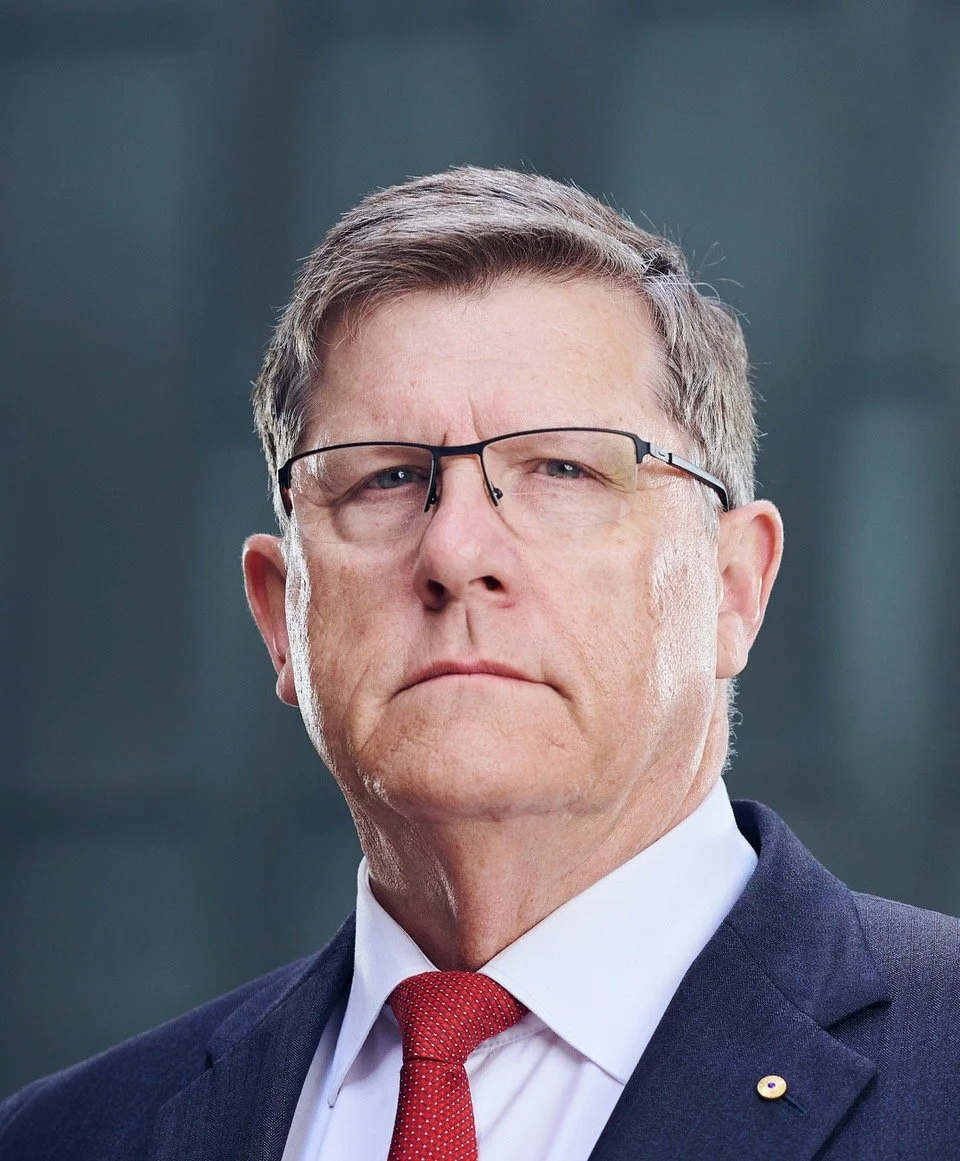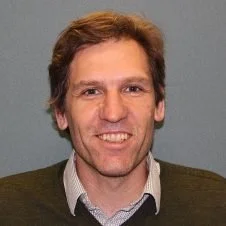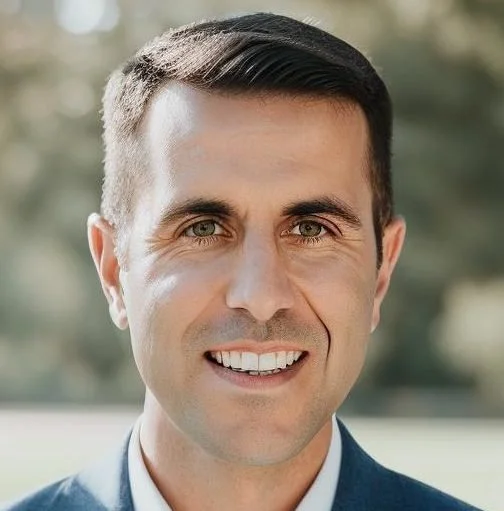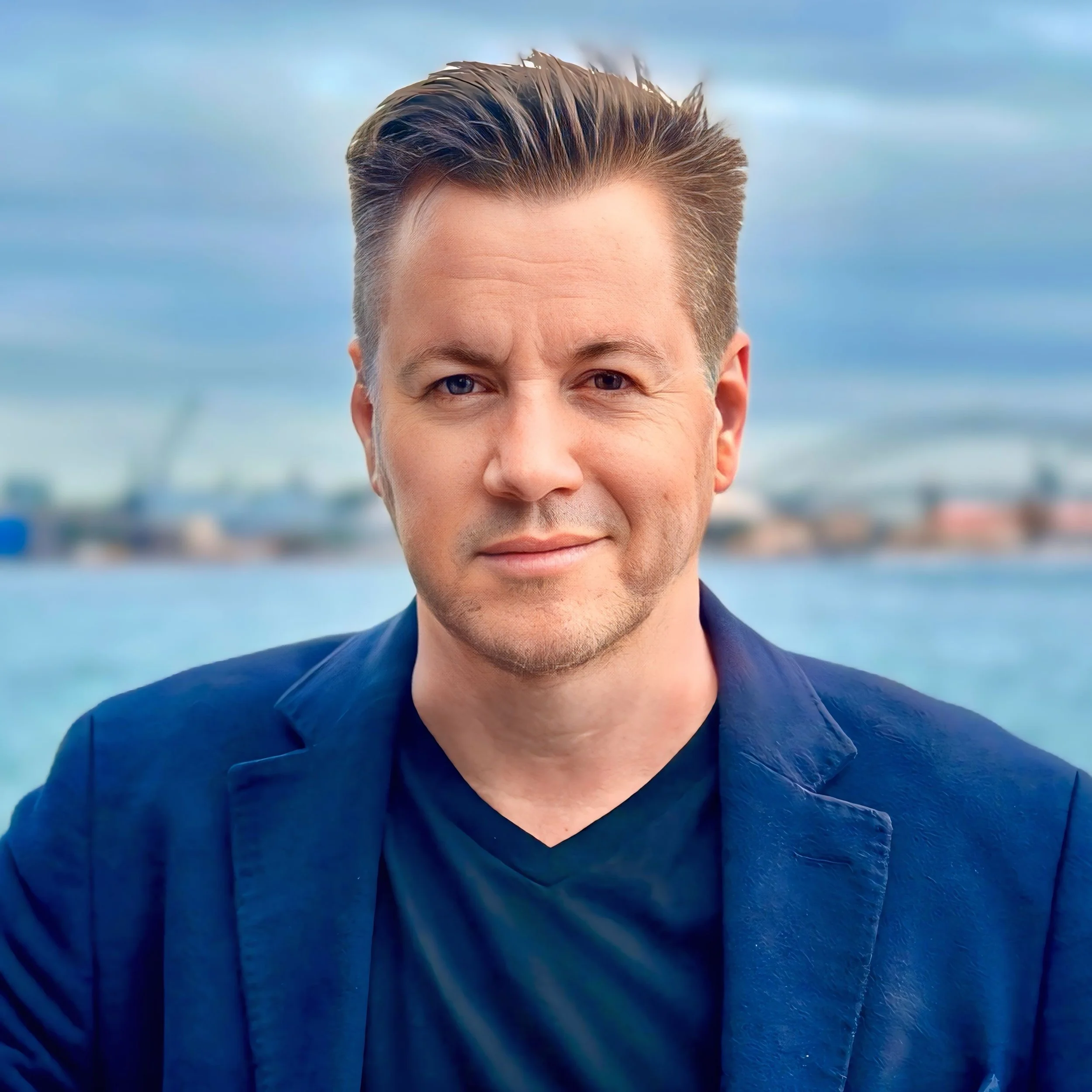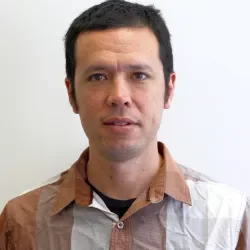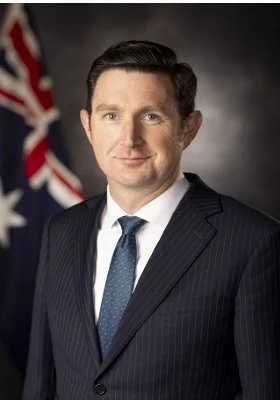dr Julie Sunday, High Commissioner for Canada to Australia
Julie Sunday joined the Department of Foreign Affairs and International Trade in 2005. She was appointed Canada’s High Commissioner for Australia in September 2024. She previously served as Assistant Deputy Minister for the Consular, Security and Emergency Management Branch, and led Canada’s consular policy and operations and international emergency policy, operations and response. She also spearheaded efforts to advance the Canada-led Declaration Against Arbitrary Detention in State-to-State Relations. She was named Canada’s first Senior Official for Hostage Affairs in October 2023 and has led diplomatic engagement to support the release of hostages abroad.
At Global Affairs Canada, Julie has served in a number of executive roles including as Director General, Security and Emergency Management, and Chief Security Officer. During the COVID 19 crisis she was Director General for Pandemic Response (2021) and led the department’s vaccine distribution campaign to Canada’s missions abroad. She has also served at two of Canada’s central agencies—the Treasury Board of Canada Secretariat (Priorities & Planning) and the Privy Council Office (Social Development Policy Secretariat) —and was Director General of Clean Technology Innovation at Natural Resources Canada.
Julie is married to Mark McLaughlin and has three daughters. She enjoys hiking and canoeing, particularly in Northern Canada, and is an avid reader. Julie speaks English, French and German.
Vice Chief of the Defence Force—Air Marshal Robert Chipman AO CSC
Air Marshal Robert Chipman joined the Royal Australian Air Force in 1989 as an Officer Cadet at the Australian Defence Force Academy, graduating from Sydney University with an Honours degree in Aeronautical Engineering in 1992. He was appointed Vice Chief of the Defence Force on 9 July 2024.
He completed Pilot’s Course in 1994, F/A-18 Operational Conversion in 1995 and Fighter Combat Instructor Course in 1999. Following various operational and instructor assignments, he commanded No 75 Squadron from 2006-2009 and No 81 Wing from 2013-2014. In 2008, No 75 Squadron was awarded the Duke of Gloucester Cup for the most proficient flying squadron and the Kittyhawk Trophy in 2009 for the most proficient fighter squadron.
Air Marshal Chipman has staff experience in capability development roles within Capability Development Group and Air Force Headquarters. He has completed a tour as Director of the Australian Air and Space Operations Centre within Headquarters Joint Operations Command. In 2015, he was an inaugural Director of Plan Jericho, an Air Force transformation program intended to deliver joint, integrated air and space capability for the Australian Defence Force.
On promotion to Air Vice-Marshal in 2019 Air Marshal Chipman served as Australia’s Military Representative to NATO and the European Union. He was the Head of Military Strategic Commitments, responsible for the strategic level management and situational awareness of current and potential Australian Defence Force commitments from January 2021, until his selection as Chief of Air Force and promotion to Air Marshal in July 2022.
Air Marshal Chipman deployed on Operation SLIPPER in 2012 as a Battlecab Director in the United States Air Force 609th Air and Space Operations Centre. He deployed on Operation OKRA in 2014 as inaugural Commander Air Task Unit 630.1, for which he was awarded a Conspicuous Service Cross in 2015. He was appointed a Member of the Order of Australia in 2019 for his exceptional service to the Australian Defence Force in coalition air operations, air combat capability preparedness, and strategic capability development and sustainment and an Officer of the Order of Australia in 2024 for his distinguished service in responsible positions as Australia’s Military Representative to NATO and as Head of Military Strategic Commitments Branch.
Air Marshal Chipman has completed a Masters in Business Administration and graduated as a fellow of the Defence and Strategic Studies Course in 2016. He is a Graduate of the Australian Institute of Company Directors and Oxford Advanced Management and Leadership Programme. He is also an alumni of the Cranlana Institute and has completed the United Nations Senior Mission Leaders Course.
Air Marshal Chipman is married to Alyce and has 4 sons, Thomas, Oliver, Darcy and Charlie. He enjoys keeping fit and reading.
Hamish Hansford, Deputy Secretary, head of national security—Department of Home Affairs
Hamish commenced as the Head of National Security on 17 July 2025. In this role he is responsible for integrating the national security mission across Home Affairs. Hamish also holds the positions of Commonwealth Counter-Terrorism Coordinator and the National Counter Foreign Interference Coordinator.
From 2023 to 2025, Hamish was the Deputy Secretary of Cyber and Infrastructure Security Group, bringing together cyber security and technology security policy, critical infrastructure and transport security policy, regulation and partnerships, protective security policy and background checking under the AusCheck scheme.
Prior to this, Hamish was the Inaugural Head of the then Cyber and Infrastructure Security Centre, a role he held from 1 September 2021, leading the principal critical infrastructure security regulatory authority, policy and program functions.
Immediately prior to this role, Hamish undertook a range of Division Head roles including leading the Cyber, Digital and Technology Policy Division, the National Security and Law Enforcement Policy Division as well Deputy Head of the COVID-19 National Coordination Mechanism.
Hamish has held Senior Executive Service positions in the former Department of Immigration and Border Protection and the former Australian Crime Commission.
Hamish has also served in a range of intelligence, policy, planning, and program delivery roles in the Department of the Prime Minister and Cabinet, Attorney General's Department, the Australian Senate and the former Office of Transport Security.
Hamish started his career in the National Museum of Australia.
Hamish has a Bachelor of Arts (ANU), Bachelor of Asian Studies (ANU and Gadjah Mada University) and an ANZSOG Executive Masters of Public Administration.
Stephen Moore, First Assistant Secretary AUKUS Advanced Capabilities—department of defence
Stephen Moore commenced as the inaugural First Assistant Secretary AUKUS Advanced Capabilities in July 2023, responsible for implementation of Pillar II of AUKUS across the Defence organisation. Prior to that, he served as First Assistant Secretary Defence Industry Policy since December 2021, where he developed and implemented international and domestic defence industry policy.
Stephen has held a number of senior positions in Defence, including Deputy Director of the Defence Intelligence Organisation, a long-term acting role as First Assistant Secretary International Policy, and as a senior advisor to a Minister. Prior to those roles, Stephen held the position of Assistant Secretary Global Interests, in the Department of Defence’s International Policy Division.
Stephen joined the Australian Defence Department when he commenced working for International Policy Division early in 2006, covering a wide range of areas including the Pacific, North Asia and the Middle East. He has been responsible for developing strategic and operations policy relating to Australia’s military commitments to Iraq and Afghanistan, and has deployed to both Iraq and Afghanistan as a policy advisor to Australian commanders in theatre.
Stephen has science degrees in Neurobiology and Geophysics, and came to the Australian Defence Department after a career in the oil and gas industry. He also holds a Masters Degree in International Relations from the Australian National University.
Dr S. Kate Conroy Wing Commander—royal australian air force
Responsible AI Lead, Jericho Disruptive Innovation
Dr S. Kate Conroy (née Devitt) is a leading global expert in responsible AI and trusted autonomous systems in military and civilian domains and national expert in AI assurance in government. She is Responsible AI Lead Royal Australian Air Force (Specialist Capability Officer Reservist) and AI Safety and Assurance Advisor Queensland Government. Dr Conroy was Chief Scientist of Trusted Autonomous Systems Defence CRC 2020-2023.
Dr Conroy has a PhD in philosophy (epistemology, applied ethics) and graduate certificate in cognitive science, Rutgers University NJ USA and a BA (Hons), Melbourne University. Dr Conroy is a leading SME co-author of the National Framework for the Assurance of Artificial Intelligence in Government (2024), Queensland Government’s Foundational AI Risk Assessment (FAIRA) (2024), TAS Responsible AI for Defence (RAID) Toolkit (2023) and the Robotics and Autonomous Systems Gateway (RAS-Gateway) 2022. She is editor of the Institute of Network Cultures book Good Data (2019) focussed on good data practices for a just and fair society.
Dr Conroy is Adjunct Professor QUT Centre for Robotics, Queensland University of Technology; and Adjunct Associate Professor Human-Centred Computing and member of the BA Advisory Board University of Queensland. She is winner Women in AI APAC 2025 Defence and Intelligence; '100 Brilliant Women AI Ethics 2023' and '50 Women in Robotics You Need to Know About 2021'.
Chris Crozier, Chief Information Officer—defence digital group
Mr Chris Crozier was recently appointed Chief Information Officer, leading the Defence Digital Group at Defence. Prior to joining Defence, Mr Crozier was the Group Chief Information Officer for Orica International, the world’s largest manufacturer and supplier of explosives for mining and civil construction. As the Group Chief Information Officer, Mr Crozier was accountable for global digital technology strategies and operations across a footprint of the organisation spanning 120 countries, covering Business (IT), Customer (IoT) and Manufacturing (OT) systems, including the governance of Orica’s digital ecosystems, architecture, data, and cyber posture.
Prior to this, Mr Crozier held executive roles within Orica as Vice President of AusPac (60% of Orica’s global EBIT), Chief Digital Officer and Global Vice President Supply Chain; and BHP as Global Chief Information Officer and Global Chief Procurement Officer.
As a 35-year veteran of the Mining and Resources Sector, having commenced his professional life with Rio Tinto as a Research Engineer, Mr Crozier has experienced the highs and lows of the commodity cycle. He has worked in Asia for more than 25 years, residing in Singapore for 18 years. Mr Crozier has a Chemical Engineering Degree (Honours First Class) and Master of Business Administration. In his spare time, Mr Crozier enjoys endurance sports, including cycling, running and swimming
Tom Rogers, Distinguished Advisor — ANU National Security College
Tom Rogers is the former Australian Electoral Commissioner, serving from 2014 to 2024: the longest tenure of any Commissioner in the Australian Electoral Commission’s (AEC) history. He is a member of the Advisory Board for the International Institute for Democracy and Electoral Assistance, and the Electoral Psychological Observatory at the London School of Economics. He previously filled roles as the AEC’s Deputy Electoral Commissioner and state manager (and Australian Electoral Officer) for New South Wales.
As Commissioner, Tom led the agency to successfully deliver the 2016, 2019 and 2022 federal elections, numerous by-elections, and boundary redistributions (redistricting) in every Australian state and territory. He also successfully delivered the first referendum in nearly a quarter of a century. Tom was responsible for building the AEC’s reputation into one of the public sectors most trusted agencies.
Prior to his time at the AEC, Tom was the Executive Director at the Australian Institute of Police Management (AIPM), which is administered by the Australian Federal Police to deliver highly respected executive development programs for leaders and future leaders of Australasian police and other public safety organisations.
Tom graduated from the Royal Military College (RMC) Duntroon in 1983 and served in the Australian Defence Force Academy, was the Senior Instructor in Leadership at RMC Duntroon, and commanded the United Nations observer mission – Observer Group Golan – Tiberias. After leaving the Australian Army in 2000, Tom worked for Raytheon Australia as a senior project manager and led the team that delivered the Sydney Olympics’ major preparedness and readiness activity.
Dr Paul Robards am,Chief Data Integration Officer (CDIO)—defence datA STRATEGY
Dr Paul Robards is the Chief Data Integration Officer (CDIO). He is responsible for the Defence Data Strategy and the OneDefence Data Platform, which will enable Defence to better govern, trust, share, discover and use data. He is also responsible for the Defence Artificial Intelligence Centre (DAIC), which will accelerate the adoption of AI in Defence, and ensure appropriate governance and assurance. Paul also manages the implementation of the Defence Business Integration Program to ensure the right capability investment and intended effects are realised across the Defence enterprise.
Paul served for over 30 years in the Australian Army. He studied for his Civil Engineering degree at the Australian Defence Force Academy before undertaking postings to engineering units in Sydney, Brisbane and Papua New Guinea. After completing a Masters of Science in Management at the US Naval Postgraduate School in 2001, he worked in Army Headquarters and Defence People Group in roles such as strategic workforce planning, workforce analysis and people policy. After completing an operations analysis course and training with Defence Science and Technology, he deployed to Afghanistan in 2011 and 2012 as an operations analyst. Following his operational experience, he worked with NATO partners to develop joint doctrine to manage the risk of green-on-blue attacks.
Paul transitioned to the Defence public service in 2019. As a member of the Defence Senior Executive Service, he has worked across a number roles in People Group where he was responsible for delivering HR and people services, the management of HR systems, and HR transformation. Paul was appointed as a Member of the Order of Australia in the 2010 Queens' Birthday honours.
In 2011, after several years of part-time research, he was conferred a Doctor of Philosophy in Information Science from the US Naval Postgraduate School.
David Nockels, First Assistant Secretary Defence Trade, Regulation and Industrial Collaboration—department of defence
David is the First Assistant Secretary, Defence Trade, Regulation and Industrial Collaboration, in the Australian Department of Defence (formerly Defence Industry Policy Division) and is responsible for Defence Industry International Policy and Defence Export Controls. The Division shapes Defence’s international engagement with industry, supporting deterrence by denial through industrial collaboration. It drives and implements the Government’s policies to expand international industrial engagement, and regulates the export of military and dual-use goods and technologies consistent with Australia’s national interests and international obligations.
David previously held the role of First Assistant Secretary People Policy and Culture. In this role, David was responsible for people policy and employment conditions for both APS and ADF, entry level and graduate recruitment programs, cultural reform, indigenous affairs, diversity and inclusion and learning and development strategies. Prior to Defence, David worked in the Department of Home Affairs in several areas including identity and biometrics, major procurement activity and contracts related to supporting Regional Processing Centres in Papua New Guinea and Nauru.
David spent a number of years with the Department of Foreign Affairs and Trade on postings including in Washington D.C. and Bangkok. David also has extensive private sector experience working for multinational companies such as Fujitsu, PA Consulting and Accenture in delivering change management and project management outcomes. David holds an Executive MBA from the Australian Graduate School of Management, University of New South Wales, a Masters in Security Policy Studies from the George Washington University in the United States, and a Bachelor of Arts from the Australian National University in Canberra.
Dr Lesley Seebeck, Co-Founder and Co-CEO of Geomastery Advisory—Senior Fellow, Strategic Analysis Australia
Dr Lesley Seebeck is Co-Founder and Co-CEO of Geomastery Advisory, Senior Fellow at Strategic Analysis Australia, and holds independent member roles on several audit committees. She has held senior executive roles in the federal government, in technology, defence and national security, and finance, was the former head and professor at the ANU Cyber Institute, former Professor of Cyber Leadership and Strategy at UNSW, and a federal government CIO of the year (2017). Dr Seebeck holds degrees in physics, defence studies, business administration and a PhD in information technology.
professor allison kealy, director, innovative planet institute, swinburne university
Professor Allison Kealy is the Director of the Innovative Planet Institute at Swinburne University, coordinating research programs in positioning, navigation, and timing (PNT), energy transition, and sustainability and resilience. Previously, she was Executive Director of Surveying and Spatial at Victoria’s Department of Transport and Planning and held academic roles at RMIT University and the University of Melbourne. She has also served as Acting Chief Research Officer at the Australian SmartSAT Cooperative Research Centre and Deputy Director of RMIT’s Defence Research Centre. Originally from Trinidad, she holds a Land Surveying degree from the University of the West Indies and a PhD in GPS and Geodesy from Newcastle University, UK. Her research focuses on sensor fusion, quantum navigation and resilient PNT. A Fellow of the Royal Institute of Navigation and the International Association of Geodesy, she also serves on the Quantum Australia Board and the Australian Research Council College of Experts.
professor matt warren, director, centre for cyber security research and innovation (RMIT university)
Matthew (Matt) Warren is the Director of the RMIT University Centre for Cyber Security Research and Innovation and a Professor of Cyber Security at RMIT University. He has held roles such as Deputy Director of University Research Centre, Head of School, Deputy Head of School, Program Leader for several programs during his tenure at Deakin University.
Matt is a researcher in the areas of Cyber Security and Computer Ethics. He has received numerous grants and awards from national and international funding bodies, such as: Australian Research Council (ARC); Engineering Physical Sciences Research Council (EPSRC) in the United Kingdom; National Research Foundation (NRF) in South Africa.
Matt has taught in Australia, Finland, Hong Kong and the United Kingdom.
Allan Dundas, founder, Chair and Chief Executive Officer, DEWC Services Pty Ltd
Mr Allan Dundas is the founder, Chair and Chief Executive Officer of DEWC Services Pty Ltd, a rapidly growing Australian defence capability company based in South Australia with over 100 staff. He is an accomplished company director, business leader, engineer and proud Australian Defence Force (ADF) Veteran.
Mr Dundas has over 30 years of experience in national defence, having served in uniform, civilian and industry roles. He commenced his career with the Royal Australian Air Force in 1990 at the age of 17 and holds a Bachelor of Electrical Engineering with First Class Honours from UNSW awarded at the Australian Defence Force Academy. He also holds master’s degrees in systems engineering and business administration, is a Graduate of the Australian Institute of Company Directors and a Fellow of Engineers Australia.
Under Mr Dundas’ leadership, DEWC Services is actively contributing to Australia’s sovereign capability in emerging critical technologies. These include the maturation of an Artificial Intelligence (AI) Agile Core Platform, development of Synthetic Intelligent Agent Systems with AI-based reasoning, deployment of Large Language Model (LLM) Demonstrators and advancement of Guided Weapons and Explosive Ordnance (GWEO) Distribution and Modelling Enterprise Tools.
In addition to his executive role at DEWC, Mr Dundas serves as Chair of the School of Information Operations and sits on the Boards of the Australian Chapter of the Association of Old Crows (AOC) and the Defence Teaming Centre (DTC).
Stephen Beaumont, AM GAICD Chairman of CI-ISAC Australia
After a distinguished 35 year Army career, Stephen has undertaken a variety of advisory and NFP board roles. Stephen is Chairman of CI-ISAC Australia, a NFP company providing Cyber Threat Intelligence sharing services to critical Infrastructure owner and operators. Stephen also facilitates leadership and management workshops for Ethos CRS, a Canberra-based training company. During his Army career Stephen was an intelligence and capability development professional his final seven years as a Brigadier spent leading intelligence analysis and capability development programs. An Arts graduate with multiple Masters degrees, he is passionate about the application of new technologies and techniques to provide capability advantage and of the power of sharing data and intelligence within trusted communities. He is a graduate of the AICD Company Director's Course, the Harvard Kennedy School and is certified as a Managing Successful Programs (MSP) practitioner.
dr Justin Fidock, Program Leader, National Security within the Space, Intelligence, National Security and Cyber (SINC) Division at Defence Science and Technology Group (DSTG)
Dr Justin Fidock is the Program Leader for National Security within the Space, Intelligence, National Security and Cyber (SINC) Division at Defence Science and Technology Group (DSTG), part of the Australian Department of Defence.
In this role, Justin leads the National Security Program, which drives Innovation, Science and Technology (IS&T) engagement with domestic and international national security partners. The Program also identifies and delivers targeted IS&T projects that enhance Defence and broader national security capabilities. The first of these projects focuses on strengthening protective security resilience, with an emphasis on insider threat, security culture, and facility security.
Dr Fidock is widely recognised for his strategic leadership across the national security science and technology ecosystem. He has led multidisciplinary research efforts spanning socio-technical systems, organisational resilience, and Human–AI teaming, with a strong focus on translating research into operational impact. Through his work, Justin has helped build enduring partnerships across government, academia, and industry, fostering innovation and capability uplift in areas critical to Australia’s security.
He is deeply committed to building strong, collaborative relationships across the national security community, bringing together industry, academia and government to co-develop IS&T solutions that deliver real impact. He actively champions cultural evolution and more integrated ways of working within the IS&T ecosystem. Justin is also a passionate advocate for diversity and inclusion, work-life balance, and the development of emerging talent.
Justin holds a PhD in Business Information Systems from RMIT University and a Master of Psychology (Organisational) from the University of South Australia. He continues to contribute to research, particularly in the area of Human–AI teaming, through collaborative projects with academic and industry.
Air Vice-Marshal John Blackburn AO (Retd)MDefStud, MStratStud
chair, institute for integrated economic research - Australia
John Blackburn is the Chair of the Institute for Integrated Economic Research – Australia. He retired from the Royal Australian Air Force in 2008 as the Deputy Chief of the Air Force, following a career as an F/A-18 fighter pilot, test pilot and strategic planner. Since 2008, John has consulted to Industry and Government Agencies and has undertaken a range of National Security and Resilience related studies, as a Reservist until 2019 , and also with the Institute for Integrated Economic Research - Australia, the Australian Security Leaders Climate Group, the Kokoda Foundation, and the Sir Richard Williams Foundation. For the past four years he has led a National Resilience Project that has highlighted a lack of resilience in Australia in addressing the pandemic, climate change impacts, the ongoing energy transition, and growing regional security threats.
dr scott forster, senior principal scientist, sensor systems, dstg
Scott Foster is Senior Principal Scientist, Sensor Systems, with the Defence Science and Technology Group. After obtaining a Ph.D. in mathematical physics from the University of Adelaide in 1996, he worked in the opto-electronics industry for 3 years before joining DSTG as a Research Scientist in 1999. From 2003-2017 he led research into precision photonic sensor technologies for undersea surveillance and, in partnership with defence industry, has developed advanced fibre optic sonar systems. More recently, he has led the Next Generation Technologies Fund Advanced Sensors and Quantum Technology Priority Themes, the Quantum Assured Positioning Navigation and Timing STaR Shot, and the DSTG Quantum Technologies Program. In these capacities he has established national multi-institute initiatives on precision quantum sensing technologies and next generation piezo-electric materials. His scientific output includes important works on short-cavity optical fibre lasers and on the fundamental limits of precision for fibre optic measurement.
john garnaut, co-founder, garnaut global
John Garnaut is the co-founder of strategic advisory firm Garnaut Global, and one of the world’s leading authorities on China's elite politics and political economy. He and his business partner Matt Pottinger advise the world’s leading asset managers, resource, and technology companies, helping them to decode Xi Jinping’s China, Donald Trump’s America, and the geostrategic competition between them. John's insights are sought by political leaders, intelligence analysts and policymakers in Australia and allied nations as they work through the implications of global tech competition. Focus areas include China’s AI ecosystem, global data centre infrastructure needs, and resilience to geopolitical crisis risks.
John was previously a corporate lawyer, an award-winning China correspondent (2007-13), and a policymaker who engineered fundamental changes to Australia’s international relations. He was Senior Advisor to Australian Prime Minister Malcolm Turnbull and Principal Advisor (International) at the Department of the Prime Minister and Cabinet, where he led the Australian Government’s interagency analysis and policy response to foreign interference (2016-17). John is the author of The Rise and Fall of the House of Bo (published by Penguin Books).
devon whittle, Director of Global Shield Australia
Devon Whittle is the Director of Global Shield Australia, an advocacy organization in Canberra focused on reducing global catastrophic risk. Devon leads policy advocacy with the Australian government and other stakeholders on issues relating to artificial intelligence, food system resilience, critical infrastructure security and emergency management. Prior to joining Global Shield, Devon had a lengthy career in the Australian public service, including with the Attorney-General's Department and Department of Foreign Affairs and Trade, and time in private legal practice working on public international law matters
Rumtin Sepasspour, co-founder & director, policy and strategy, global shield australia
Rumtin Sepasspour is the Director of Policy and Strategy for Global Shield, a global advocacy organization focused on reducing global catastrophic risk, with offices in DC and Canberra. He leads Global Shield’s policy research and development process, strategic planning for the organization and efforts to expand global presence. Prior to co-founding Global Shield, Rumtin was a policy officer in the Department of the Prime Minister and Cabinet and an intelligence analyst in Australia’s Department of Defence
Josh Kennedy-White, Fujitsu’s Defence Industry Lead for Australia
Josh Kennedy-White is Fujitsu’s Defence Industry Lead for Australia.
He has led projects of national significance for the Australian Government, delivering practical and technical solutions to complex mission challenges. His work spans sovereign AI systems, secure digital infrastructure, and innovation initiatives bridging Defence, national security, and the private sector.
Josh has managed large-scale transformation programs across the Middle East and Asia-Pacific, including counterterrorism and intelligence initiatives that combined behavioural science, data analytics, and machine learning to improve mission effectiveness.
His previous government experience provided insight into policy, innovation, and decision-making within the national security community and the application of emerging technology to complex challenges. He also holds advisory and board roles in Australia, Singapore, Saudi Arabia, the United States, and the United Kingdom, guiding investment and strategy in quantum, AI, cyber security, and space.
Josh serves as a Global Ambassador for The HALO Trust, the world’s largest humanitarian mine-clearance organisation, advising on technology applications to support post-conflict recovery in Afghanistan and other mine-affected countries where HALO operates.
Peter anstee, First Assistant Secretary, Counter Foreign Interference, Cyber and Technology Division —Department of Home Affairs
Peter is the First Assistant Secretary for the Counter Foreign Interference, Cyber and Technology Division at the Department of Home Affairs.
Peter leads the development and coordination of national cyber security policy, security measures for critical and emerging technologies and counter foreign interference.
Prior to this role, Peter was an executive director at CyberCX, Australia’s largest cyber security professional services firm.
From 2015 – 2018 Peter was a senior adviser to Prime Minister Malcolm Turnbull where he led key areas of Prime Minister’s foreign affairs and national security agenda including cyber.
Later this year Peter will head to University of California Berkeley as a Fulbright Senior Scholar where he will research trusted supply chains for frontier AI models.
professor robert ward, cnetre director, the centre for gravitational astrophysics
Professor Robert Ward is an expert in quantum precision measurement and gravitational wave detection. He began research into gravitational wave detection in 2004, receiving his PhD from the California Institute of Technology in 2010 for experimental work prototyping the Advanced LIGO interferometers that first detected gravitational waves in 2015, as well as analysing LIGO data to search for stochastic gravitational waves. He undertook postdoctoral research at the CNRS as a member of the Virgo gravitational wave collaboration, completing the optical design of the Advanced Virgo gravitational wave detector. In 2011, he joined the ANU Centre for Gravitational Physics where he worked on commissioning the Advanced LIGO detectors, led and conducted research to mitigate the seismic, thermal and quantum noises limiting gravitational wave detectors, including quantum enhancement methods and techniques, and established new education programs for instrumentation and measurement. While at the ANU he also established the Australian research effort for the Breakthrough Starshot program. In March 2025, he became Director of the ANU Centre for Gravitational Astrophysics.
Matt Flint Assistant Secretary AUKUS Policy and Engagement AUKUS Advanced Capabilities, Department of defence
Matt Flint is currently Assistant Secretary AUKUS Policy and Engagement within Strategy, Policy and Industry Group (SP&I). Prior to this Matt was appointed Assistant Secretary of the Nuclear Powered Submarines and National Naval Shipbuilding Enterprise Branch in the Department of Prime Minister and Cabinet’s National Security and International Policy Group in February 2022. Matt has worked across defence, national security and foreign policy issues for the last two decades, with a focus on defence and security cooperation in Southeast Asia and the Pacific. He was Counsellor Defence in the Australian Embassy in Jakarta from 2016 to 2019, and First Secretary Defence in Australia’s High Commission in Port Moresby from 2008 to 2010. Matt was a member of the 2016 Defence White Paper Taskforce. Matt holds a Masters of Science (Defence) from the Indonesia Defence University and a Bachelor of Asian Studies (Indonesian) from the Australian National University. He is married with one son.




